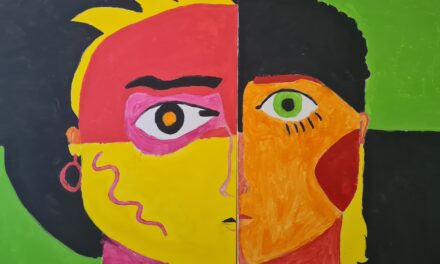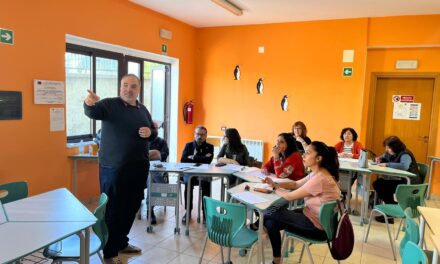During this international exchange students have had the opportunity to meet each other and get to know the Spanish culture fully integrated in the usual schedule. This activity has helped students understand when bullying is physical, verbal and/or social, or if it’s not actually bullying. Sport and recreational activities are just one part of a comprehensive violence prevention strategy that includes child protection and development components, as well as educational workshops that teach children and parents about non-violence and strengthening family ties. Arts & Crafts are a cultural expression, a fundamental element in our definition of ourselves, through our identity as belonging to a group, and our identity as distinct from other groups. They are a system of communication, a body of images, a protocol of usages, situation, and behavior, which represents a whole system of meaning that strengthens the bonds between ourselves and others and defines our belonging to a specific cultural identity. In this sense, Arts & Crafts can be seen as the strongest elements of negotiation and adaptation among cultures. Moreover, exploring music of different cultures is among the first characteristics of identity that meet each other, and it can have a fundamental role in enriching the cultures. Music has the potential to promote integration among different ethnicities because it can change the way of feelings, thinking and acting. Arts, Crafts and music, indeed, could be considered as one of the strongest tools of intercultural dialogue and intercultural learning. Teachers have coordinated the students to join a variety of activities meant to prevent aggressive behavior. During each activity, the hosting school will introduce their practices for preparing students to “R.E.S.P.E.C.T.” philosophy. In this way we have learnt from each other.
Daily schedule of the international exchange
Day 1 – Introduction of participants: a brief welcome and an activity allowing participants to get to know each other. Fair Game Respect Matters; Popular sports in schools. Healthy Sporting Environments; Respectful youth competitions. Students join in workshops related to the topic of mobility while teachers meet to update agenda. Role plays and Ice-breaking activities.
Day 2 – Codes of conduct for players; Baskin and sitting volley games and competition. Direct experiences of sports programmes to stop violence. Role plays and Ice-breaking activities.
Day 3 – Workshop: Paint blobs/splatters, “Ugly Art”, Marble and paint in tray. Workshop: handcrafts and traditional games. Role plays and Ice-breaking activities.
Day 4 – Workshop: String painting, Blowing paint with straw, Finger paint. Workshop: Marble in tray/toy car in paint tray, Treasure hunts and map making, Crafts creation. Workshop: Traditional dance or music performance. Role plays and Ice-breaking activities.
Day 5 – Display of items produced, outdoor games, evaluation and feedback, certification, farewell party with performances. Participating students and teachers are divided into two groups – the research group and the practical activities group. They will work with their peers in the hosting country in the first four days of activities, after which they will be presented the results of the other groups. Students and teachers will attend at least two classes every day, so that they can observe the methods, style and content of the lesson in the host country. At the end of the week, the host country will organize a show in 0.which all students are brought together to present their work.



